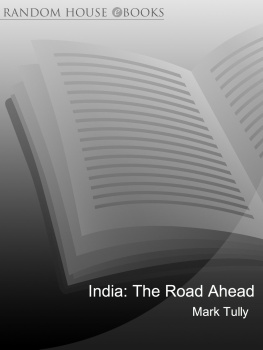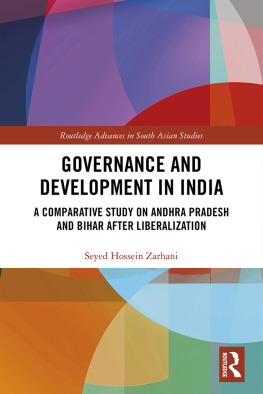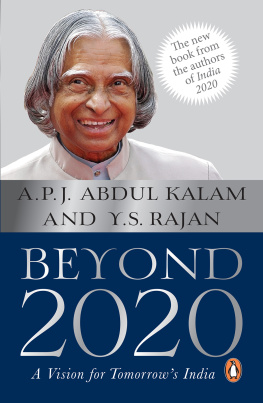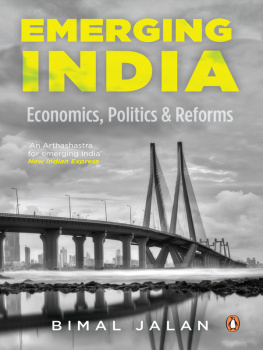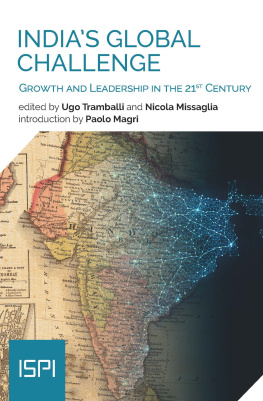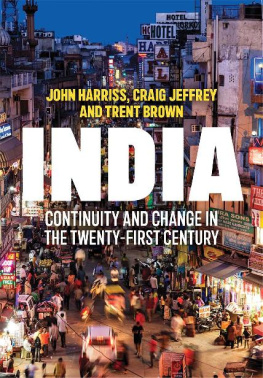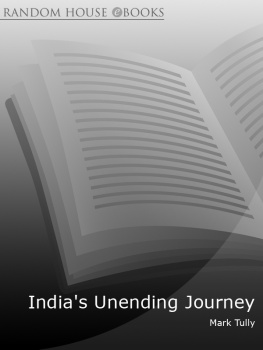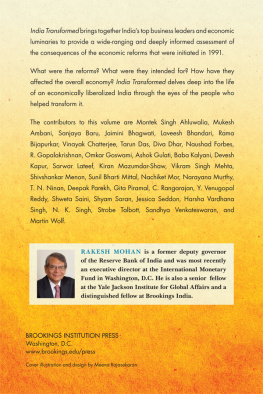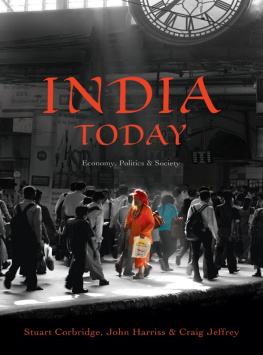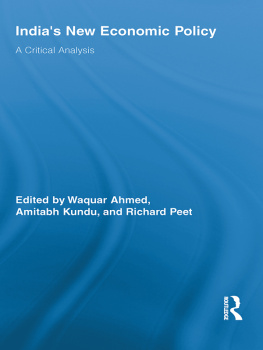This ebook is copyright material and must not be copied, reproduced, transferred, distributed, leased, licensed or publicly performed or used in any way except as specifically permitted in writing by the publishers, as allowed under the terms and conditions under which it was purchased or as strictly permitted by applicable copyright law. Any unauthorised distribution or use of this text may be a direct infringement of the authors and publishers rights and those responsible may be liable in law accordingly.
Version 1.0
Epub ISBN 9781446490945
www.randomhouse.co.uk
1 3 5 7 9 10 8 6 4 2
Published in 2011 by Rider, an imprint of Ebury Publishing
A Random House Group Company
Copyright 2011 Mark Tully
Mark Tully has asserted his right to be identified as the author of this Work in accordance with the Copyright, Designs and Patents Act 1988
All rights reserved. No part of this publication may be reproduced, stored in a retrieval system, or transmitted in any form or by any means, electronic, mechanical, photocopying, recording or otherwise, without the prior permission of the copyright owner
The Random House Group Limited Reg. No. 954009
Addresses for companies within the Random House Group can be found at www.randomhouse.co.uk
A CIP catalogue record for this book is available from the British Library
ISBN 9781846041617
To buy books by your favourite authors and register for offers, visit: www.randomhouse.co.uk
Also by Mark Tully
No Full Stops in India
India in Slow Motion (with Gillian Wright)
The Heart of India
Amritsar: Mrs Gandhis Last Battle (with Satish Jacob)
From Raj to Rajiv (with Zareer Masani)
Mother
Lives of Jesus
Indias Unending Journey
Paying adequate tribute to each of those who gave their time to talk to me, and often travel with me, during the writing of this book, would require many pages and that might become rather tedious too. So I hope that they will find their roles in the stories in which they appear a recognition of my gratitude. Without their willingness to give their time and share their knowledge there would be no stories.
Two people read some of the chapters and offered invaluable advice. Both are former colleagues from my days as the BBCs Delhi Correspondent, Ramdutt Tripathi from Lucknow, and Subir Bhaumik from Kolkata. The economist and translator Bibek Debroy does not appear in the book but he gave me invaluable advice. The radio producer Matt Thompson willingly gave me permission to use the some of the recordings we made when making a programme together on tiger poaching. Mandeep Singh Bajwa generously helped my research in Punjab. I am deeply indebted to my editors, Judith Kendra and Sue Lascelles from Random House in London and Ravi Singh from Penguin India. They helped me overcome the difficulties a broadcasting journalist, used to writing short snappy reports, faces when he has to write a coherent book. Lastly I am profoundly grateful to my partner, and my companion on many of the journeys I have described in this book, Gillian Wright. As well as companionship, she provided a critical eye, drive when enthusiasm was flagging, and an awful lot of hard work.

Yamunanagar is a town in the northern Indian state of Haryana. Its dusty and slightly down at heel not the sort of place pilgrims driving to the historic Sikh gurudwara, or temple, of Paonta Sahib, or tourists travelling to the foothills of the Himalayas, would normally stop at unless obliged to by the railway crossing in the centre of town. In the eighties I was obliged to stop there because I had crashed into the back of a tractor that was driving in the dark without lights on a country road. I had been driving an Ambassador, a version of the late forties British Morris Oxford which had few rivals then, and survives today although it now does face fierce competition. The Ambassador had limped to the nearest village where a puncture repairer managed to separate the fan and radiator from the rest of the engine with a crowbar. He also sprinkled turmeric powder into the radiator, saying that it would stop the leaks temporarily but that I should go to Yamunanagar to get the radiator welded.
While the welder was at work the level crossing gates closed and I watched the traffic build up. Queues formed in both the left and the right lanes on either side of the gates and grew longer and longer. Eventually a seemingly endless coal train rumbled slowly by. After some time the gatekeeper leisurely opened the crossing. Vehicles from both directions in the left and right lanes moved forward a few yards until they met head on in the middle of the track. There wasnt a policeman in sight. Every driver seemed to think that merely by blowing the horn the traffic would move. Amidst this cacophony a pony in the shafts of a cart reared in alarm, spilling sacks of grain on the road. Frustrated truck drivers revved their engines futilely and noxious black fumes poured from their exhausts. At first it looked as though no one was going to give way, but then slowly by a process of reluctant mutual give and take, the traffic started to crawl across the railway track.
I asked the welder whether this happened every time the level crossing gates closed. Oh yes, he replied.
Well, why doesnt someone do something to stop the build-up of traffic on both sides of the road? I asked.
Arre, he said impatiently, as though that was a stupid question, who does anything about anything in this country? Why are we Indians religious people? Because we know that this country only runs because God runs it. Its all jugaar. Jugaar could loosely be translated as muddling through, or making do. Putting turmeric in a leaky radiator was a classic example of the principle.
More than twenty years later things have changed dramatically in India and so there may well be a bridge built over the railway line in Yamunanagar. I havent been to back to see, but I have seen many elsewhere. There may even be a bypass. If there are traffic jams its far less likely now that horse-drawn vehicles will be caught up in them. The relentless expansion of the motor industry has seen to that. But jugaar still flourishes.
The word came into prominence in 2010 when the preparations for the Commonwealth Games were so behind schedule and so slip-shod that some countries threatened to pull out their teams. There was particular concern about the accommodation for the athletes. However, almost miraculously everything was all right on the day. This miracle was widely attributed to Indias talent for jugaar, rather than God, and it prompted a debate on that peculiar phenomenons merits and demerits. In an article in The Times of India, the economist Swaminathan S. Anklesaria Aiyar put a positive spin on the word, attributing to it India and Indians ability to innovate. He quoted a survey showing that 81 per cent of Indian businessmen said

